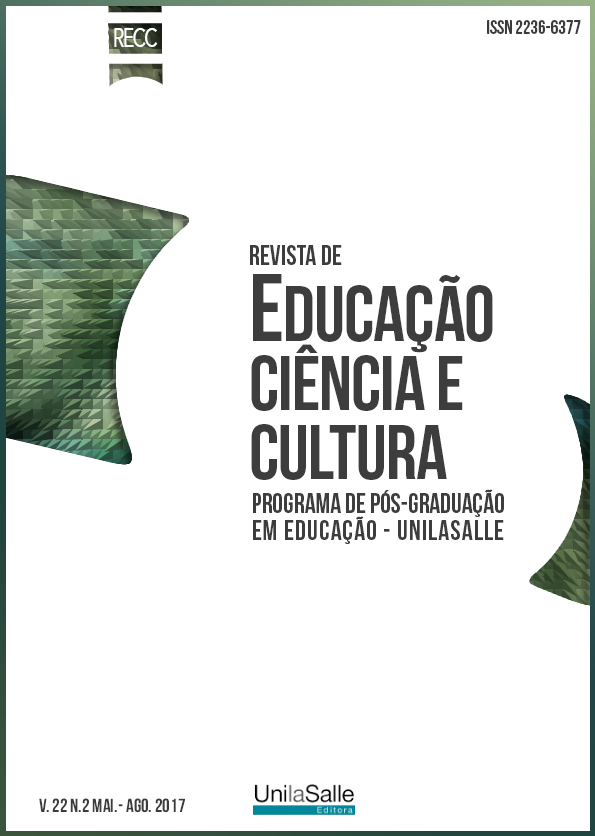“Battle Arena”: the video game as an inventive context
DOI:
https://doi.org/10.18316/recc.v22i2.3526Keywords:
Video game, Cognition, Invention, Electronic Games, Learning.Abstract
Then aim of this article is to discuss the relation between video games and cognition analyzing the first author’s experience with the game “Defence of the Ancients”. This online game is cooperative and competitive. The playing experience is discussed through the Ian Bogost’s method of Procedural Rhetoric analysis, considering not only the elements of the game, but a broader process involving actions from software and player. By this research it was possible to build tools to think about this game as an invention space focusing its description on the functionality that the games require of their players. In this perspective, the set of symbols arranged by the game only acquire meaning through the action of the player and are not properly interpreted from the spectator’s point of view. The rules, in turn, do not determine action, but define the player’s conditions of a possible experience. These features allow the operator to create a less descriptive and more operational type of knowledge, a more embodied know-how, which is configured from the rules of the game, but that is not so destitute of thought.Downloads
Published
2017-05-09
Issue
Section
Experiences
License
Authors must submit their manuscripts to be published in this journal agree with the following terms:Authors maintain the copy rights and concede to the journal the right of first publication, with the paper simultaneously licensed under the License Creative Commons attribution that permits the sharing of the paper with recognition of authorship and initial publication in this journal.
Since the articles are presented in this journal of public access, they are of free use, with their own attributions for educational and non-commercial purposes.
The Periodic Journal of Education, Science and Culture in http://www.revistas.unilasalle.edu.br/index.php/Educacao was licensed with a Creative Commons - Attribution - Noncommercial 3.0 Not Adapted.


